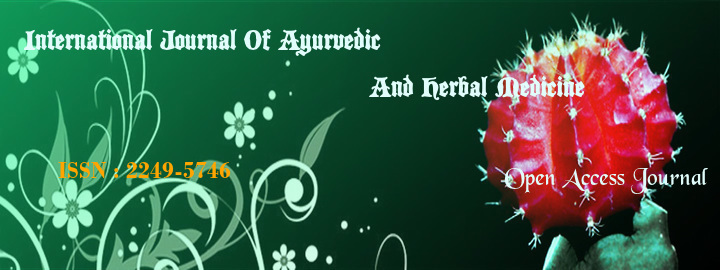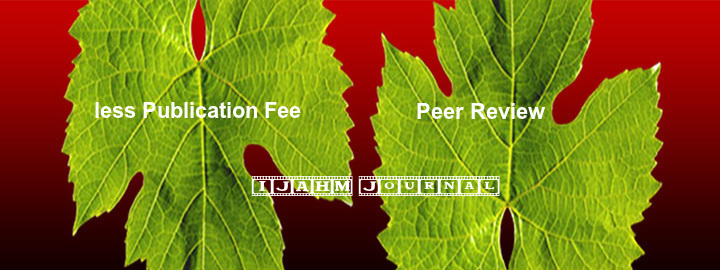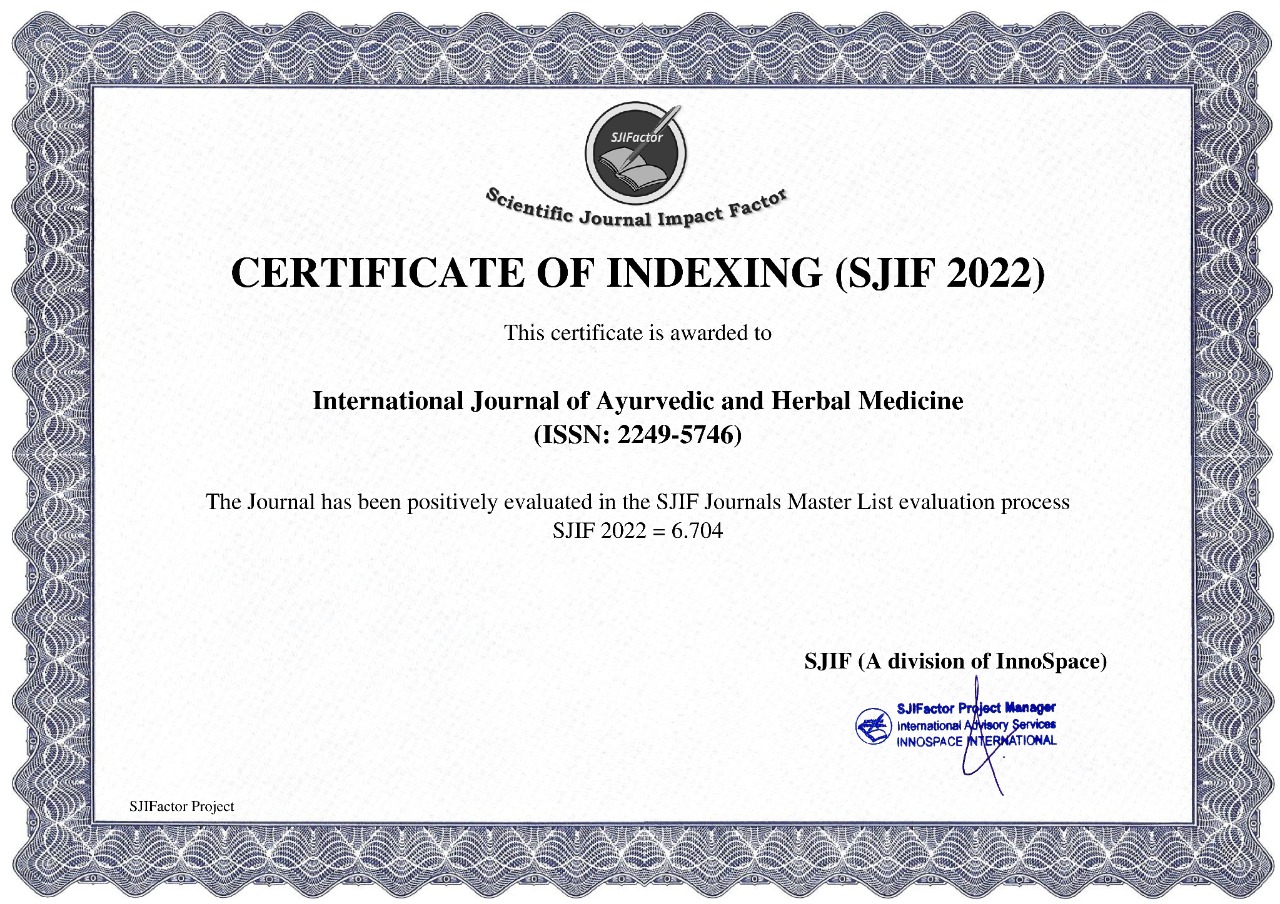


1Dr. Sawant Sonia Madhukar , 2Dr.Ninad Sathe
1Assistant professor, Dept of Kaumarbhritya ,DY Patil School of Ayurved
2Professor & Vice Dean of YMT Ayurvedic medical college,kharghar
Abstract :
Type 1 diabetes mellitus is the most common Pediatric chronic endocrine illness. The prevalence of juvenile diabetes is 1% - 4% of the total diabetic population with the highest incidence during puberty (10-15 years age group).
Hypothesis :- Psychological stress has been hypothesized to be an environmental factor appears to play an significant role in the pathogenesis of childhood onset type 1 diabetes mellitus.
Objective :- To study the main psychosocial factors associated with the development of type 1 diabetes based on the review of the scientific literature
Methodology :- Research underscore the following risk factors , stressful life events, personal and interpersonal factors and also protection factors. Applied Implications of Ayurveda Principles in stress management, Behavioral intervention and positive parenting intervention and help them cope with their illness.
Results :- Parenting stress and negative stress events were associated with the induction of diabetes-related autoimmunity in early childhood.
Conclusion :- Psychological stress inducing increased cortisol levels leading to insulin resistance and beta-cell stress, could be involved in the development of Type 1 diabetes.
Key words :- Psychological stress, Juvenile Diabetes , Behavioral Intervention , Ayurveda
REFERENCES
1. Stress In Children May Alter The Immune Response. The Journal Of Immunology, 192(5), 2071-2081.
2. Cohen, S., Janicki-Deverts, D., & Miller, G. E. (2007) Psychological Stress And Disease. Jama, 298(14), 1685-1687.
3. Kovacs, M. & Devlin, B. (1998) Internalizing Disorders In Childhood. Journal Of Child Psychology And Psychiatry, 39(1), 47-63.
4. Kurdek, L. A. (2002) On Being Insecure About The Assessment Of Attachment Styles. Journal Of Social And Personal Relationships, 19(6), 811-834.
5. Leaverton,D. R., White, C. A., Mccormick, C. R., Smith, P., & Sheikholislam, B. (1980) Parental Loss Antecedent To Childhood Diabetes Mellitus. Journal of The American Academy Of Child Psychiatry, 19(4), 678-689.
6. Agnivesha, Charaka, Dridhabala, Charaka Samhita, Chikitsa.Sthana,Adhyaya, 1/4/30-35 Text With English translation And Critical Exposition Based On Chakra panidatta's 'Ayurveda dipika', By Dr. Ram Karan Sharma And Vaidya Bhagvan Dash. 7 Th Ed. Vol.Chiktsa Sthana ,Page No. 3
7. Overstreet S, Goins J, Chen RS, Et Al. Family Environment And The Interrelation Of Family Structure,Child Behavior, And Metabolic Control For Children With Diabetes. J Pediatr Psychol 1995: 20: 435–447.
8. Charak Samhita With Ayurveda Deepika Commentary Of Chakrapani Datta ,Ed.Yadavji Trikarma Ji Acharya ,Chaukhamba Surbharati Prakashan , Varanasi,Charak Samhita ,Sharirsthan Chapter 1 ,Shlok 102
9. Charak Samhita With Ayurveda Deepika Commentary Of Chakrapani Datta ,Ed.Yadavji Trikarma Ji Acharya ,Chaukhamba Surbharati Prakashan , Varanasi,Charak Samhita ,Sharirsthan Chapter 1 ,Shlok 101
10. Charak Samhita With Ayurveda Deepika Commentary Of Chakrapani Datta ,Ed.Yadavji Trikarma Ji Acharya ,Chaukhamba Surbharati Prakashan , Varanasi,Charak Samhita ,Sharirsthan Chapter 1 ,Shlok 100
11. Charak Samhita With Ayurveda Deepika Commentary Of Chakrapani Datta ,Ed.Yadavji Trikarma Ji Acharya ,Chaukhamba Surbharati Prakashan , Varanasi,Charak Samhita ,Sharirsthan Chapter 1 ,Shlok 99
12. Knip M. Environmental Triggers And Determinants Of Beta-Cell Autoimmunity And Type 1 Diabetes. Rev Endocr Metab Disord 2003;4:213–23. 25.
13. Karvonen M, Viik-Kajander M, Moltchanova E, Libman I, Laporte R, Tuomilehto J. Incidence Of Childhood Type 1 Diabetes Worldwide. Diabetes Mondiale (Diamond) Project Group. Diabetes Care 2000;23:1516–26.
index























